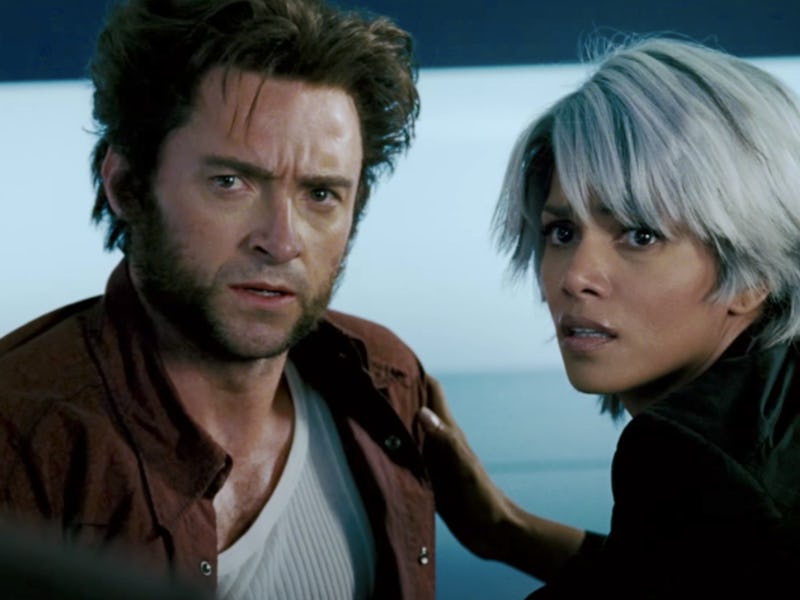Eternals theory: One change from the comics reveals how X-Men join the MCU
Marvel is changing a crucial detail about the Eternals, and it could explain how mutants join the MCU.

Change is coming to the Marvel Cinematic Universe, and not just because an alien race that has remained hidden for millennia will reveal itself in Eternals. The first trailer for Marvel’s upcoming Phase 4 film reveals our first significant look at the superhero team, but could it also reveal how the X-Men will join the MCU?
Ever since Disney’s purchase of 20th Century Fox closed last year, fans have been impatiently wondering how Marvel will the Fantastic Four and the X-Men into a cinematic universe that’s also existed for over a decade. That question was partially answered late last year when Kevin Feige announced that Spider-Man director Jon Watts was developing a Fantastic Four movie for some undisclosed point in the future, but the X-Men’s cinematic fate appears to remain a mystery right now. (Rumor has it we could get a Wolverine anthology show before we get a movie.) Except… what if it’s a mystery that is unfolding in front of everyone’s eyes?
The official Marvel Studios description of Eternals describes the eponymous heroes as “ancient aliens who have been living on Earth in secret for thousands of years,” adding that “following the events of Avengers: Endgame, an unexpected tragedy forces them out of the shadows to reunite against mankind's most ancient enemy, the Deviants.”
There’s a significant deviation — no pun intended — from Marvel comic book lore in there already. In Jack Kirby’s source material, the Eternals are definitively not aliens, but instead a genetic offshoot of humanity created through modification by the alien race known as the Celestials. (The Deviants, too, are another offshoot of humanity created by the Celestials, and therefore essentially Eternals themselves; it’s a whole thing.) Although the series was built to follow a number of different plot threads, one of the earliest introduced is the idea of evolution and hyper-evolved humans, as shown by the Eternals themselves.
Mutants are, of course, another example of that idea...
But how would Eternals lead to the introduction of mutants into the MCU? There are at least a couple of obvious opportunities, including the Eternals themselves finding some way to activate a dormant mutant gene as part of their ongoing mission to help humanity. If Eternals is on some level a story about evolution, that would make sense. (“We have helped them progress,” Ajak says; progress or evolve?) Alternately, the crisis that provokes the Eternals into revealing themselves to the world may be the emergence of mutantkind, as pushed for some unknown reason by the Deviants.
If Thanos killing half of all life wasn’t enough to bring them out of hiding, could an interruption in the natural evolutionary process get their attention?
Then there’s the substitution theory: If the comic book Eternals were a genetically advanced offshoot of humanity created by the alien Celestials, but the cinematic Eternals are aliens… what if mutantkind takes the place of the comic book Eternals, with the comic book Celestials replaced by the cinematic Eternals? Admittedly, that sounds more convoluted than it needs to be, so to put it bluntly: What if the Eternals created mutantkind, and both groups have been in the MCU all along, entirely hidden for reasons to be revealed in November’s movie…? (It’s a fair question; Marvel has a history with asking What If? after all.)
In the new movie, the Eternals appear to fill the role of the Celestials as aliens visiting Earth to interfere with human life.
This latter possibility would also help differentiate the Eternals from the Inhumans (another group of superpowers individuals who are separated-from-but-also-connected-to humanity that had previously been at the center of the ABC series Inhumans in 2017), as well as the Kree or the Asgardians, two other groups of superpowered aliens that happen to look entirely human and hang around on Earth in the MCU. Placing the Eternals in the role of those responsible for manipulating events from behind the scenes gives them a unique identity in an increasingly crowded cinematic universe.
Of course, this might all be entirely off base. Marvel might want to play things more conservatively and use Eternals to introduce one new concept to the MCU (not two). This also fits with recent stories like WandaVision and The Falcon and the Winter Soldier, which were more focused on their core characters than worldbuilding.
There might also be another, arguably easier, way to bring the X-Men and their fellow mutants into the universe already on the horizon, considering that there are no less than two entire movies about multiverses and alternate realities crossing over into the MCU in the next twelve months. (Spider-Man: No Way Home and Doctor Strange in the Multiverse of Madness, in case you’ve forgotten.)
One way or another, however, one thing remains true: mutants are coming. It’s just a matter of when.
Eternals arrives in theaters on November 5, 2021.
This article was originally published on